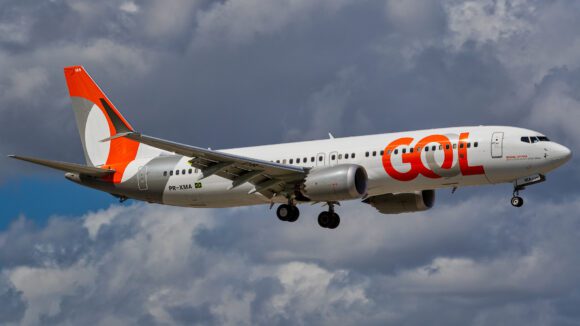Who would have thought it? Delta is one of the leading US carriers that has made its annoyance with the big three Middle Eastern airlines quite public. But today Delta announced that it is taking yet another equity stake in an airline, purchasing a 3.55% stake in China Eastern. This is becoming something of a habit at Delta, and it is closely following the Etihad model of buying equity stakes to further cement its airline alliances.
The following table lists the recent equity deals by Delta. The stakes are small, but as the GOL and Aeromexico deals illustrate, can expand. In addition, AF-KL, a strategic partner of Delta, has also invested in GOL, further cementing the SkyTeam™ alliance relationship.
 By taking a stake in another airline, any alliance relationship is considerably upgraded. When Delta has skin in the game, the relationship is much more significant. This is not simply a date, it’s a commitment.
By taking a stake in another airline, any alliance relationship is considerably upgraded. When Delta has skin in the game, the relationship is much more significant. This is not simply a date, it’s a commitment.
Delta has had equity investments in other airlines before. Twenty six years ago (1989) Delta, Swissair and Singapore exchange stakes in each other to develop a tight relationship called the Qualiflyer Alliance. This lasted about a decade, but started to fall apart by 1999, when the other two airlines joined different the Star Alliance. The difference today is that the shareholding is one way, rather than bi-directional.
With these stakes Delta is securing access and tightening its grip on alliance partners. There is another potential equity stake currently being considered in Japan with bankrupt Skymark, one of two contenders in the Skymark bankruptcy. That investment would likely result in SkyTeam gaining a foothold in Japan to compete with Star (ANA) and oneworld (JAL).
Fortunately for Delta it is currently rolling in cash. With the US oligopoly in full cry and fuel costs at low levels, the cash is pouring in – over a $1bn per quarter. These stakes are small beer when compared to the company’s profits.
Bear in mind that these stakes also give Delta access to something it quietly benefits from – a newer fleet via code-sharing. J Paul Getty famously once said that the cheapest oil he could find was on Wall Street – without the prospecting risk. Perhaps Delta is doing the same with its stakes. These airlines have relatively young fleets in markets rich with potential. Delta benefits through connecting traffic and code sharing.
The Bottom Line
Partnering with someone who is not only a partner, but a large shareholder as well.
————————
Delta provided the following as a response to our story: Delta has never had an issue where Gulf carriers invest; rather, the concern is with the fact that they are economic arms of the State that receive billions of dollars in government subsidies. These subsidies tilt the playing field in their favor and violate Open Skies agreements. In this respect, Delta doesn’t look anything like a Middle East carrier. More info is available on openandfairskies.com.
Views: 0



Actually, the Qualiflier Alliance dissolved because Delta wanted a bigger partner and moved to Air France. Swissair then moved to its own home-grown alliance which ended when SR went bankrupt. Swiss International did not join Star until much later after it became a part of LH.